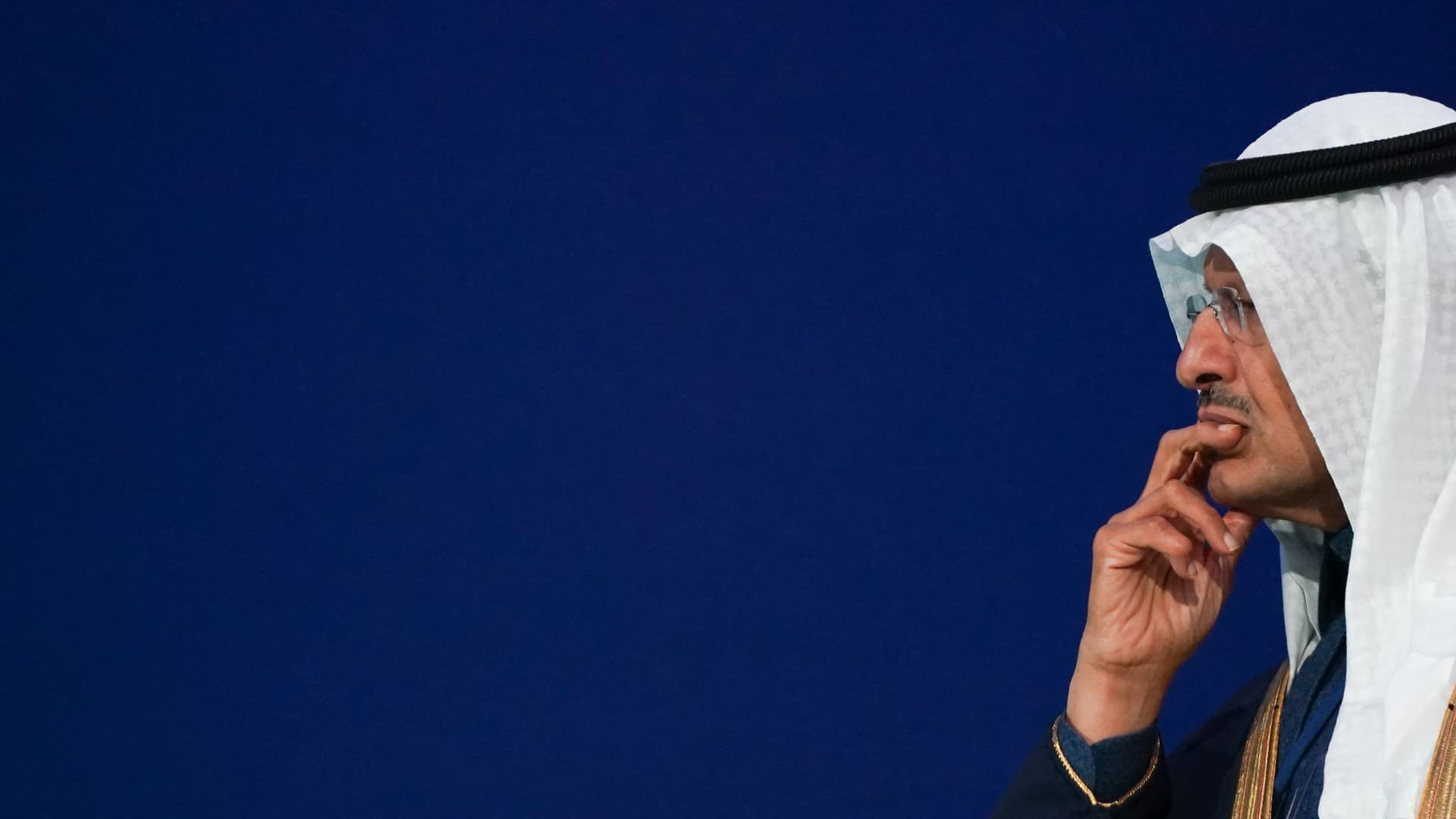A group of some of the world’s most powerful oil producers on Thursday will meet to determine the next phase of output policy following reports the U.S. is considering the largest ever draw from its emergency oil reserve.
OPEC and non-OPEC partners, an influential energy alliance known as OPEC+, will hold talks via videoconference from around 12:30 p.m. London time.
Energy analysts expect OPEC+ to stick to its strategy of gradually reopening the taps despite sustained pressure from top consumers calling for the group to pump more to cool soaring oil prices and aid the economic recovery.
Oil prices have rallied to a near all-time high on concerns about Russian supply disruptions after the U.S. and international allies imposed a barrage of economic measures against the Kremlin as a result of its unprovoked onslaught in Ukraine.
To be sure, Russia is the world’s third-largest oil producer, behind the U.S. and Saudi Arabia, and the world’s largest exporter of crude to global markets. It is also a major producer and exporter of natural gas.
It is against this backdrop that the U.S. is considering a plan to cool soaring crude prices by releasing up to 180 million barrels from the country’s strategic petroleum reserve, Reuters reported Wednesday, citing four unnamed sources. President Joe Biden is expected to deliver remarks later on Thursday.
The move would mark the third time the U.S. has tapped its SPR in six months and the second since Russia’s invasion of Ukraine on Feb. 24.
Oil prices dropped sharply on the news. International benchmark Brent crude futures traded 5.8% lower at $106.87 a barrel on Thursday morning in London, while U.S. West Texas Intermediate futures fell 6% to $101.33.
Supply shock
Edward Bell, senior director of market economics at Emirates NBD, said Thursday that he expects OPEC+ to stick to its existing policy.
“When you look at the structure of forward curves, they are very much telling you that this is not a market that is well supplied and there is a considerable supply shock going forward over the rest of 2022,” Bell told CNBC’s “Capital Connection.”
“I don’t think though that this is really going to push OPEC+ to try and increase the scale of their production at a faster pace,” Bell said, particularly given that the U.S. is reportedly considering the release of up to 180 million barrels from the SPR.
“What this may do is just be the ammunition OPEC+ needs to say ‘Well, look, there is oil available out there, you can draw it out on the reserves.’ We have seen similar messaging from OPEC countries in the past when there have been requests for faster increases.”
OPEC Secretary-General Mohammad Barkindo on Wednesday encouraged members of the group, which includes Russia, to “stay the course” and “remain vigilant and attentive to ever-changing market conditions.”
OPEC+ is in the process of unwinding record supply cuts of roughly 10 million barrels per day. The historic production cut was put in place in April 2020 to help the energy market recover after the coronavirus pandemic cratered demand for crude.
The producer alliance has raised output targets by 400,000 barrels per day each month since August last year. This monthly target increase is slated to increase to 432,000 barrels per day from May 1.
‘Act of desperation’
Saudi Energy Minister Prince Abdulaziz bin Salman said Tuesday that OPEC+ would keep politics out of its decision-making in favor of the “common good” of stabilizing energy prices.
Separately, United Arab Emirates Energy Minister Suhail Al Mazrouei told CNBC earlier this week that Russia would always be a part of OPEC+ even as governments across the globe shun the oil exporter over its war in Ukraine.
Tamas Varga, an analyst at PVM Oil Associates, said the prospect of a massive SPR release was one of two available tools to provide extra supply on short notice. The other one would be the return to the Iranian nuclear accord.
“Presently it seems like an understandable act of desperation with [a] questionable outcome,” Varga said.
Last week, the leaders of the G-7 major economies called on OPEC to raise oil production amid fears of supply shortages.
“We call on oil and gas producing countries to act in a responsible manner and to increase deliveries to international markets, noting that OPEC has a key role to play. We will work with them and all partners to ensure stable and sustainable global energy supplies,” the group said in a statement.
The G-7 group of major economies is comprised of the U.K., U.S., Canada, Japan, Germany, France and Italy.
